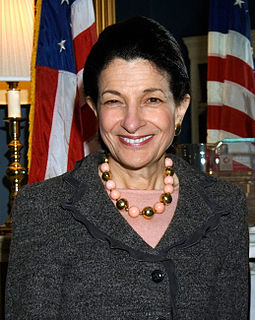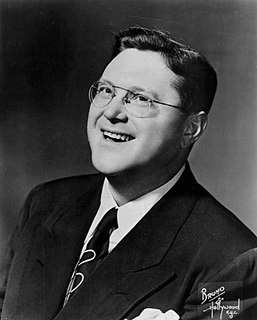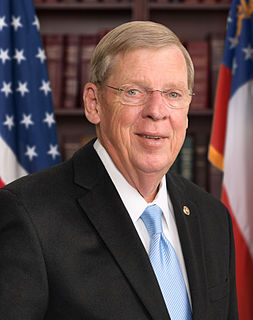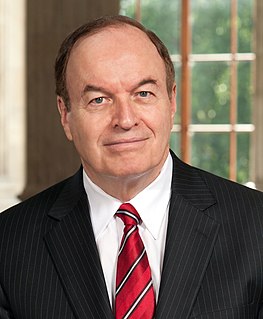A Quote by Tina Smith
I was appointed to the Senate, and it has been my job to serve in the Senate and then to earn the vote of Minnesotans.
Related Quotes
The Senate was the equivalent of an aristocracy at the beginning. Senators were not even elected; they were appointed in the early days. Then that changed, and senators did become elected. But the Senate is designed to slow down out-of-control, madcap activity elsewhere in the legislative branch (i.e., in the House), and the 60-vote rule was part of that.
Bob Torricelli, Democrat member of the Senate, was basically about to be thrown out of office on corruption charges, and he went to the floor of the Senate to deny everything. And we juxtaposed his denials with an attorney from someone in an action against Torricelli who was listing all of the gifts and all the bribes that Torricelli had been given and offered in exchange for policy considerations on the Senate floor. So he's on the Senate floor denying it.
Moments ago, the U.S. Senate decided to do the unthinkable about gun violence - nothing at all. Over two years ago, when I was shot point-blank in the head, the U.S. Senate chose to do nothing. Four months ago, 20 first-graders lost their lives in a brutal attack on their school, and the U.S. Senate chose to do nothing. It's clear to me that if members of the U.S. Senate refuse to change the laws to reduce gun violence, then we need to change the members of the U.S. Senate.
You now have six-year campaigns for the Senate - you never stop running. It's not uncommon for a member of the Senate to have a fundraising breakfast, a fundraising lunch and a fundraising dinner, and then when the Senate breaks for the week to go home, more fundraisers. And that's driven by the cost of campaigning.































